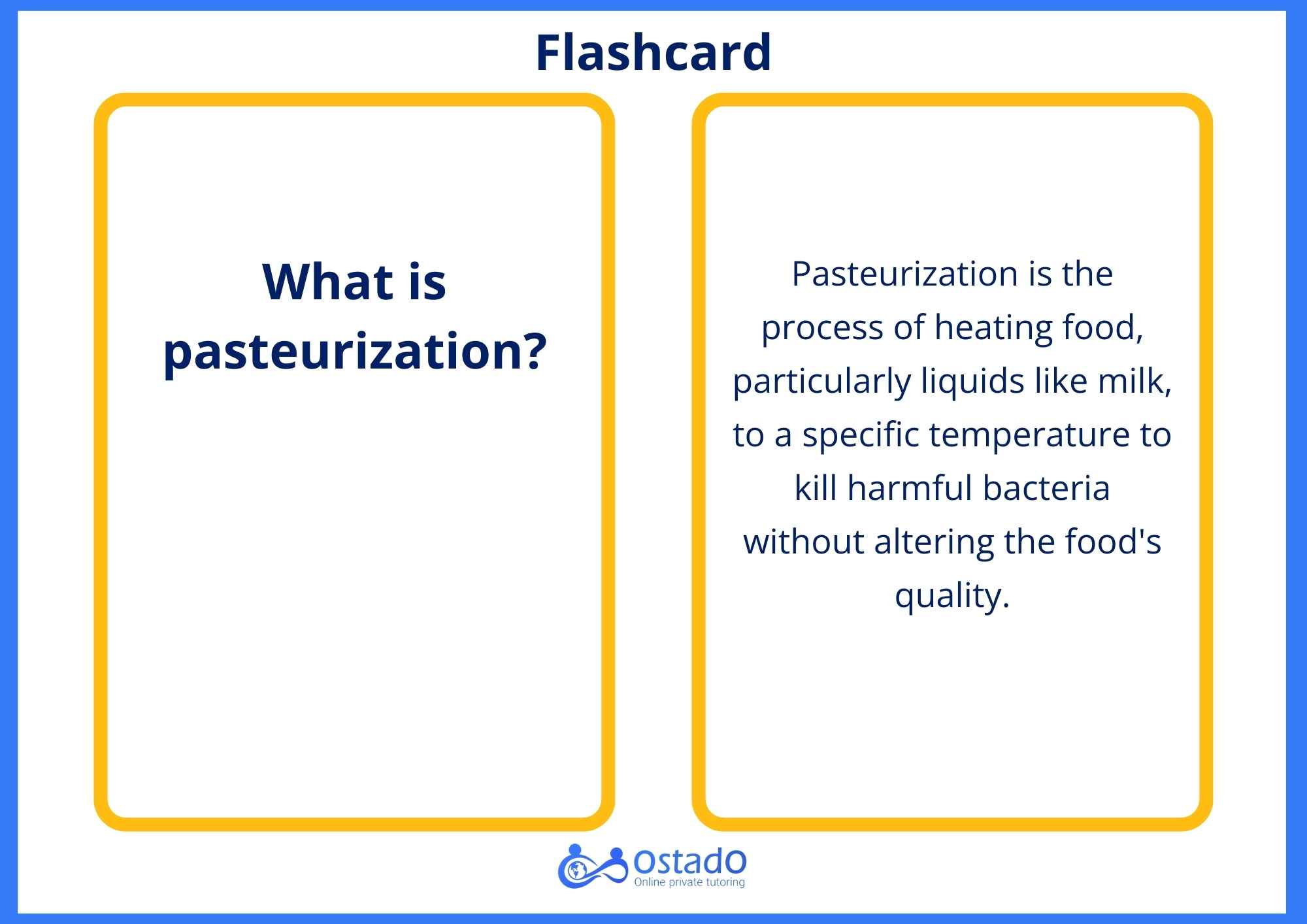As interesting as food tech is, it’s a challenging GCSE. According to statistics, the pass rate is about 62%.
You need a structured revision plan. Many online resources help you with food tech AQA GCSE revision. But what are the best ones for AQA specifications? How do you approach exam questions? This revision guide has the answers.
How to Revise for AQA GCSE Food Technology
First, understand the syllabus and make a list of what to revise. Below is a list of GCSE food science topics:
1. Nutritional Science
This is the central GCSE topic. The main focus is:
- Nutrition study
- Nutrition function in the body
- nutrition effect on the human body
One of the most effective revision strategies for food science is using flashcards. This way, you can learn everything about proteins, fats, micronutrients and minerals.
Write a term such as athlete dietary needs on one side and answer on the other side, for example.

Exam Style Questions
Explain why protein is important in a balanced diet. (6 marks)
2. Food Safety and Hygiene
Safe food preparation skills are the main focus here. The topics include:
- Safe food handling.
- Foodborn illnesses.
- Hygiene practices in homes.
- Hygiene practices in industrial kitchens.
You can use flowcharts to learn the process of food preparation and nutrition safety. Focus on key terms such as safe storage, kitchen equipment, etc.
Exam Style Question
“Describe how to store raw and cooked foods to prevent cross-contamination. (4 marks)”
3. Cooking Techniques and Methods
Food tech revision GCSE requires learning cooking methods and their impacts. The main topics are:
- Cooking methods (baking, grilling, frying).
- Heat transfer.
- Structure change and the impacts.
- Nutritional value.
Exam Style Question
“Explain how frying affects the nutritional value of food compared to steaming. (4 marks)”
4. Food Production and Processing
This is where things get exciting! Industrial food production. For an effective food tech revision GCSE, you need to learn:
- Industrial food technologies and methods.
- Packaging.
- Food additives.
- Sustainable methods of food production.
Mind Maps are excellent tools for understanding food processes.
Exam Style Question
“Describe the primary and secondary processing of wheat into flour and bread. (6 marks)”
5. Environmental Impact of Food Production
In this section, you will study the ecological footprint of food production and how it affects sustainability. The key topics include:
- Sustainability in food production.
- Food waste.
- Organic farming.
- Carbon footprint.
You will need to support your answers with facts. The best revision technique is to use comparison charts with the pros and cons of different methods.
Exam Style Question
“Evaluate the environmental impact of organic farming compared to intensive farming methods. (8 marks)”
Read More: How Many GCSEs Can You Take?
Food tech AQA GCSE Revision Resources
Past papers are the number one GCSE resources. You can access past papers and mark schemes on the AQA website.
For lessons and quizzes, you can use:
- BBC Bitesize: for revision notes, lessons, videos and quizzes.
- Seneca Revision Notes: for revision notes.
- GCSE Food Tech YouTube Playlist: for exam tips and revision guides.
Online Lessons By Expert Tutors
For GCSE success, you need exam techniques and critical thinking skills. Ostado GCSE tutors can help you achieve your desired results.
Plus, you will have a dedicated education supporter by your side. Ostado education supporters help you find the ideal tutor who understands your needs. For your comfort of mind, we offer free trial lessons.
Your GCSE Exam Structure
The written exam is worth 50% of your GCSE. You have 1 hour and 45 minutes to complete it. The questions are in various types: multiple-choice questions, short answer questions, and extended response questions.
The other 50% is for the non-examination assessment (NEA). The tasks include:
- Food investigation.
- Food preparation.
Sample tasks:
- Investigate what type of flour is best for bread making.
- Investigate the use of raising agents in baked products.
- Investigate the ingredients used to thicken sauces and soups.
Food Tech FAQ
- Is Food Technology GCSE hard?The pass rate of food tech is around 62%. Many students consider it an easy GCSE. But, there’s too much to cover. Without proper studying, the GCSE is not that easy.
- Can you take Food Tech for A-Levels?No. However, you can pursue related subjects such as Nutrition and Food Science or Design and Technology for your A-levels.
- What jobs can you get with a Food Tech GCSE?Mostly, entry level jobs in the food industry. Catering, food production assistant, and culinary arts are some examples.

